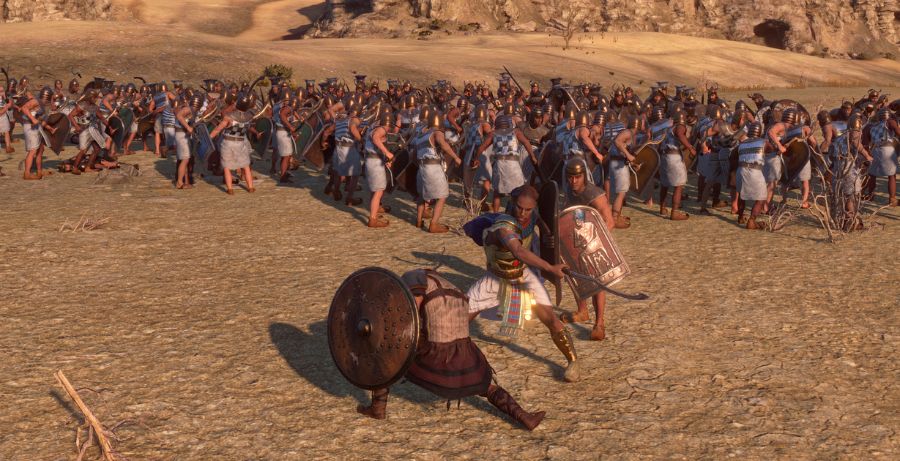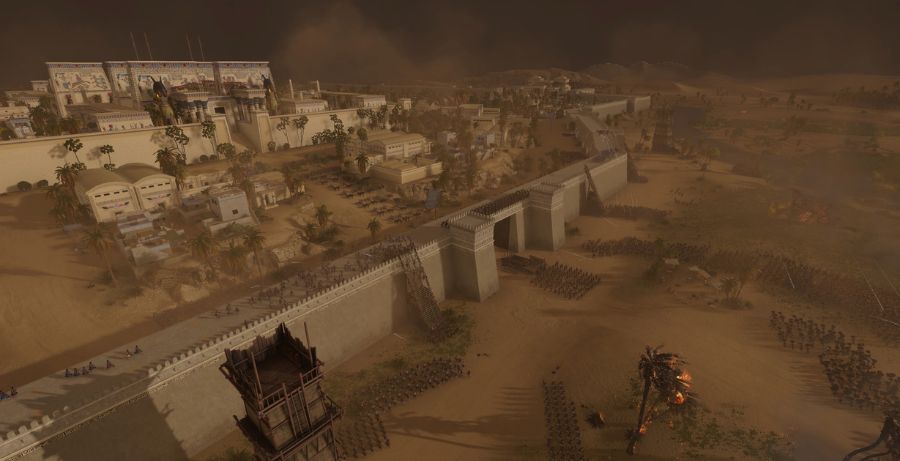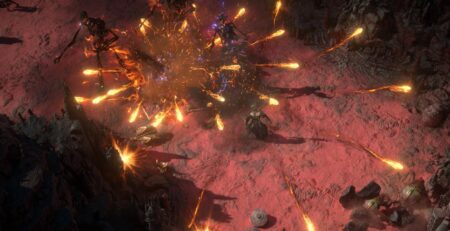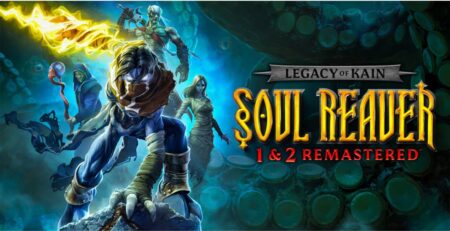Total War: PHARAOH is the latest in a long line of award-winning grand strategy games in the Total War franchise. Set in Egypt at the height of its historical powers, players are thrown into the fight for the throne as the great civilization faces possible extinction.
Developed by Creative Assembly and Feral Interactive, Total War: PHAROH is published by SEGA and sends players to a time when the great Pharaoh Merneptah is near death, and the succession for the throne in Egypt is unclear. There are several factions vying for power, and players are thrust into the role of one of eight potential rulers. Options include Merneptah’s sons Seti and Amenmesse, Ramesses, and non-Egyptian leaders such as the Hittite Suppiluliuma or the Canaanite Irsu. Each of these historical figures has its own unique advantages and disadvantages, making for a different experience each time.
While there may only be eight options, the variety of available units, buildings, and goals presents many opportunities in Total War: PHARAOH. These factions all feel vastly different to play, and multiple campaigns with different rulers almost felt like a completely different game. It helps that each ruler’s backstory and motivations are shown, making the experience more immersive. It’s easy to feel like the warrior Ramesses, for example, because of the history shown and the interactions other rulers have with him.
Each of these factions may be different, but the core gameplay mechanic is the same: become the ruler of Egypt and lord over a massive kingdom. Important mechanics such as legitimacy, power of the crown, ancient legacy, and deities all come together to make your claim on the throne more secure. Raising your legitimacy by conquering your neighbors and regaining sacred lands allows you to challenge for the throne, where the power of the crown gives Royal Powers that make ruling civilization easier.

All of these mechanics work hand-in-hand as players establish their kingdom. Every decision made in Total War: PHARAOH matters, so it is important to slow down and think through decisions. As the kingdom grows, so do the problems that can arise. It is impressive how much Total War: PHARAOH manages to throw at players while keeping it all so natural that those problems never feel overwhelming. It encourages strategic thinking, and the risks and rewards come about in natural ways that make the player feel like a part of the conquests.
Speaking of conquests, warfare in Total War: PHARAOH is as excellent as ever. Establishing generals and recruiting armies to serve under them, players head off into battle with a full set of tools at their disposal. Since each ruler has unique units or a lack of units in some cases, army composition is vital when heading into battle. Resource management is also important, as a lack of food or even unrest at home due to a lack of resources can lead to attrition before the battle even begins.
There is an option to have battles automatically resolved for you, something I found myself doing quite often when I had the overwhelming advantage, but the real bread and butter of Total War: PHARAOH is the real-time battles. Checking weather conditions before the battle and deploying units in a strategic formation allows for myriad options when taking the fight to your enemies. Toying around with pre-battle setups is both important and fun, with no real right or wrong answer on how to go into battle. Of course, each battlefield is so drastically different so that helps keep the options rolling.
Once in battle, unit management is key. Sending an army of archers rushing head-first into a chariot charge, for example, probably isn’t the best idea. Every unit has strengths and weaknesses based on the unit type they are facing as well as the terrain and weather. The tutorials in Total War: PHARAOH help explain these advantages quite well, so there is no need to worry about being overwhelmed by new things to learn before heading into war.

Still, you are trying to rule one of history’s most important civilizations, so taking the time to learn the ins and outs of every available unit and planning carefully before fighting is vital. Making the tough choice to retreat from battle and cut your losses or press on despite a disadvantage can be the difference between the life and death of your fledgling kingdom. Total War: PHARAOH has a great selection of tools and resources in-game to help give you all the knowledge you need before making these decisions. Or, of course, you could always be like me and choose to ignore some of that advice and fall flat on your face.
Familiar grand strategy mechanics like resource management and diplomacy play an important role in Total War: PHARAOH as well, although there is little that makes them stand out. That isn’t a problem, though, as they are implemented well and are easy to grasp since they are such familiar mechanics. Some small tweaks, like natural disasters and seasons, do help add a twist in some areas, but it isn’t as strong of an effect as one would think. Having these more familiar mechanics helps make it easier for newer players not to be so overwhelmed when getting a grip on the political and military aspects of the game, so I ended up appreciating that not everything was dripping in depth and complexity.
What Total War: PHARAOH does best as a grand strategy game is balancing the need for complexity and freedom while also allowing players to ease their way in. Some leaders and campaigns are much easier than others, even though they all allow for the same amount of freedom of choice. Helpful tutorials and advisors also help make the onboarding process a seamless one, but they are entirely optional for more experienced players who want to jump straight into the challenge.
Total War: PHARAOH is also a success thematically, with visuals and music that help set the stage for truly epic campaigns. Unit movements are more fluid, too, which helps the battles feel even better than in previous entries. Character designs for the leaders and their generals are also well-done, adding another layer to the historical immersion. A little more variety in the individual cities and units would have been welcomed, but that doesn’t mean there isn’t a good amount of variety already there.
Total War: PHARAOH is a smashing success as a grand strategy game and brings the hit franchise to a new historical era. Fascinating leaders and subplots with mechanics to match help make each play session fresh and enjoyable. Additional leaders and units in the future could make this experience even better, but what is already there is a delight to play.
Total War: PHARAOH is available now on PC.
Total War: PHARAOH
-
Rating - 9/109/10
TL;DR
Total War: PHARAOH is a smashing success as a grand strategy game and brings the hit franchise to a new historical era. Fascinating leaders and subplots with mechanics to match help make each play session fresh and enjoyable.





